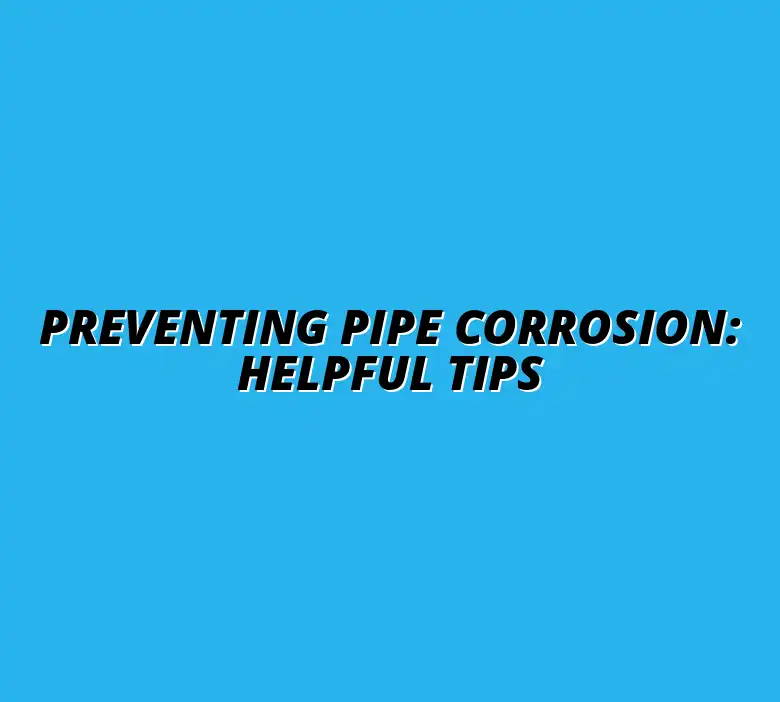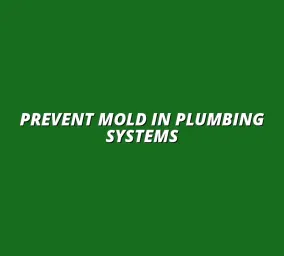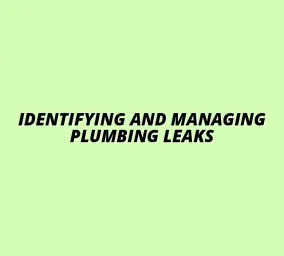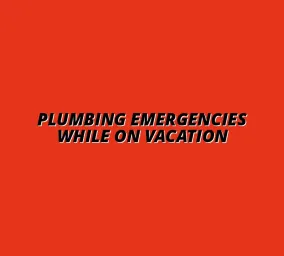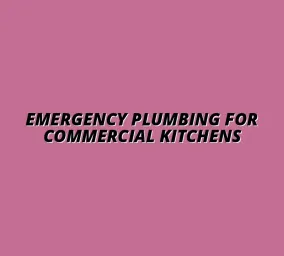Preventing Pipe Corrosion: Helpful Tips
Understanding Pipe Corrosion and Its Impacts on Home Plumbing
When it comes to home plumbing, pipe corrosion can be a hidden enemy that silently wreaks havoc. Over time, the materials in your plumbing system can break down due to various factors, leading to leaks, reduced water quality, and even costly repairs. Understanding pipe corrosion is crucial for every homeowner. It helps us take preventive measures, ensuring that our plumbing systems remain intact and functional.
In this article, we’ll explore the ins and outs of pipe corrosion, including its causes, signs, and the ways we can prevent it. At Plumb Pro Care, we’re committed to helping you protect your home from plumbing issues, so let's dive right in!
What is Pipe Corrosion?
Pipe corrosion occurs when the metal or plastic materials in your plumbing system react with the elements in the water or the environment, leading to a deterioration of the pipes. This can happen gradually and may not always be obvious until significant damage has occurred. As a homeowner, recognizing what pipe corrosion is and how it manifests can help you act early.
Corrosion can lead to leaks, which may not only waste water but also cause damage to your home’s structure. It’s important to understand that pipe corrosion is not just a minor issue; it can escalate into a major plumbing disaster if left unchecked.
Common Causes of Plumbing Corrosion
Several factors can contribute to pipe corrosion, and being aware of these can help you take preventive action. Here are some of the most common causes:
- Chemical reactions in the water.
- Environmental factors like humidity and temperature fluctuations.
- Improper installation or use of incompatible materials.
- Aging plumbing systems that haven’t been maintained.
Chemical Reactions and Their Effects
Chemical reactions in water, especially if it’s highly acidic or contains high levels of chlorine, can lead to significant corrosion of metal pipes. When these chemicals interact with the metal, they can cause it to break down over time. This is a common issue in older systems that may not have been designed with these factors in mind.
At Plumb Pro Care, we often advise homeowners to test their water quality. This allows us to identify any corrosive elements that may be present and suggest appropriate treatments.
Environmental Factors Contributing to Corrosion
The environment plays a significant role in the rate of pipe corrosion. Factors such as high humidity, extreme temperatures, and even soil conditions can impact your plumbing. For instance, buried pipes may corrode faster in acidic soils. Keeping an eye on these factors can help you plan maintenance and inspections more effectively.
In my experience, homeowners living in areas with harsh climates should consider regular check-ups to ensure their plumbing systems remain in good shape!
Signs of Corroded Pipes in Your Home
Identifying corroded pipes early can save you a lot of trouble. Here are some signs to watch for:
- Discoloration in your water.
- Unusual metallic tastes or smells.
- Visible rust or staining on pipes.
- Leaking or dripping from pipe joints.
Visible Indicators of Pipe Damage
Visible signs of pipe damage are your first clues that something might be wrong. Look for rust stains, discoloration, or any wet spots around your plumbing fixtures. These can indicate that corrosion has already begun and that prompt action is necessary.
As a homeowner, being proactive can help mitigate further damage and associated costs!
Subtle Signs Suggesting Corrosion Issues
Not all signs of corrosion are obvious. Sometimes, the signs can be subtle. For example, if you notice a change in water taste or smell, this could be a sign that corrosive materials are leaching into your water supply.
In many cases, homeowners overlook these subtle signs. Regular checks and awareness of these indicators can lead to timely interventions, reducing the risk of severe plumbing issues down the line.
Regular Maintenance Practices for Long-lasting Plumbing
Keeping your plumbing in great shape requires a commitment to regular maintenance. Many homeowners don't realize that a little effort goes a long way in preventing major issues down the line. By implementing a routine maintenance schedule, you can ensure that your pipes remain free from corrosion and other problems.
From simple inspections to more thorough cleaning processes, staying proactive can save you time and money. Here’s a glimpse of essential practices that every homeowner should adopt for long-lasting plumbing!
Routine Inspections and Monitoring
When it comes to your plumbing system, regular inspections are key. Homeowners should aim to schedule a professional plumbing inspection at least once a year. Plumb Pro Care can help you stay on track with these inspections, ensuring that everything is functioning properly.
There are also some signs that you can monitor on your own to catch potential corrosion early. Look out for:
- Rusty or discolored water
- Leaking pipes or fixtures
- Unusual noises coming from your plumbing
When to Schedule Professional Plumbing Inspections
Timing is crucial for preventing plumbing issues. I recommend scheduling professional inspections when you notice any irregularities or at the start of a new season. This way, you can address any problems before they escalate!
DIY Signs of Potential Corrosion
Beyond the visible signs, some subtle clues may indicate corrosion. For instance, check for:
- Water stains on walls or ceilings
- Unpleasant odors from drains
- Slow drainage in sinks and tubs
If you identify any of these signs, it’s best to act fast by contacting a professional.
Cleaning and Flushing Your Plumbing System
Cleaning your plumbing system is another vital maintenance practice. It generally involves flushing your pipes to remove buildups and debris that could lead to corrosion. Homeowners should do this at least once a year!
To clean your pipes effectively, follow these steps:
- Turn off the water supply.
- Attach a flushing device to your plumbing.
- Run a cleaning solution through your pipes.
- Flush with clean water until the solution is gone.
How to Effectively Clean the Pipes
Using a vinegar and baking soda solution is a natural way to clean your pipes. This method helps dissolve buildup, keeping your plumbing clear and functioning smoothly.
The Role of Flushing in Preventive Maintenance
Flushing your plumbing system regularly not only removes debris but also helps prevent corrosion by eliminating stagnant water. Remember, stagnant water can lead to mineral deposits, which can greatly contribute to the corrosion process.
Common Questions and Insights about Pipe Corrosion
As a homeowner, you may have lingering questions about pipe corrosion. Understanding its impact on your plumbing can help you make informed decisions!
How Does Corrosion Affect Water Quality?
Corrosion can significantly affect your water quality by introducing harmful metals, such as lead and copper, into your drinking water. Regular maintenance can help mitigate this risk!
What Are the Cost Implications of Corroded Pipes?
Corroded pipes can lead to costly repairs and replacements. By investing in regular maintenance now, you can save yourself from larger expenses later!
Can I Repair Corroded Pipes, or Should They Be Replaced?
It depends on the extent of the corrosion. Minor corrosion can often be repaired, but if the damage is extensive, replacement may be the best option. Always consult with a professional to determine the right course of action!
Final Thoughts on Protecting Your Home’s Plumbing
Creating a long-term plan for pipe maintenance can safeguard your plumbing investment. By staying vigilant and proactive, you can ensure that your plumbing system remains in top shape.
Don’t forget to share this knowledge with your family and friends. Encouraging awareness about plumbing care can help everyone enjoy clean, safe water!
Taking action today will protect your home and your loved ones. Let's keep those pipes flowing smoothly! If you need assistance, don’t hesitate to reach out to Plumb Pro Care for expert advice and services.

